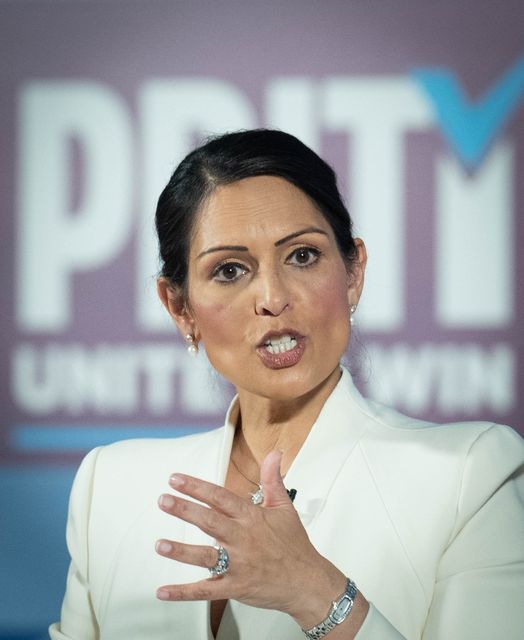The UK has refused to follow the US in declaring that a genocide is being committed in Sudan, but said those responsible for “atrocities” should be held to account.
Foreign Office minister Anneliese Dodds told the Commons the UK Government’s position would be based on the International Criminal Court’s determination.
Sudan descended into conflict in April 2023 after months of worsening tensions turned into open fighting between rival factions seeking control of the country.
Earlier this month, America accused Sudan’s Rapid Support Force rebel group and proxies of committing genocide in the country and imposed sanctions on the group’s leaders.
Responding to an urgent question from Conservative former minister Andrew Mitchell, Ms Dodds said: “The long-standing position of successive British governments is that it is for courts to decide whether genocide has occurred.
“While the UK takes a different approach to genocide determination therefore, than the US does, we condemn what is happening in the strongest terms. Irrespective of any genocide determination, it is clear that atrocities have been committed in this conflict, those responsible must be held to account.”
She added: “We are determined to do all we can, as the UK, to work with others, to press the warring parties to abide with international law and to protect civilians – collecting information, promoting prevention and ensuring accountability.”
Shadow foreign secretary Dame Priti Patel asked whether the Government intended to go further on sanctions and mirror the US (Stefan Rousseau/PA)
Shadow foreign secretary Dame Priti Patel said Sudan was “hurtling towards a man-made catastrophe on an unimaginable scale”, before adding: “Is it this Government’s intention to now go further on sanctions and to mirror the United States?”
Ms Dodds replied: “We keep our sanctions under review, but we will not comment on future designations for reasons that I know she fully understands.”
Liberal Democrat foreign affairs spokesman Calum Miller pressed the Government for a deadline on when it would decide whether genocide was taking place.
He said: “In light of the judgment of the US administration, can the minister give the House a date by which the Government will have determined whether genocide is now being committed?”
Ms Dodds said it was important there was “robustness” and “trust” in the determination, adding that it was “through determinations of those expert lawyers” at the International Criminal Court that decisions would be made.
SNP MP Chris Law (Dundee Central) asked: “Why is it so reticent that time after time in this House, we cannot use the word genocide when it’s all around us and the evidence is there for us to see?”
Ms Dodds replied: “This Government believes it’s critically important that we have an approach to determining genocide that’s consistent with our obligations – our obligations under the Genocide Convention and under the Rome Statute.
“They’re incredibly important, because I talked about before, it is critical that we have trust internationally in that system, that we make sure there is a clear, impartial, and independent methodology for the determination of genocide.”
John Slinger, Labour MP for Rugby, argued “more external pressure is needed from the international community to deter those who would commit war crimes” in Sudan.
He asked the minister: “Irrespective of definitions of genocide, does (Ms Dodds) agree with me that more external pressure is needed from the international community to deter those who would commit war crimes, to make sure that humanitarian aid gets in, irrespective of local opposition?”
She replied: “Yes, I do, on all counts.”
